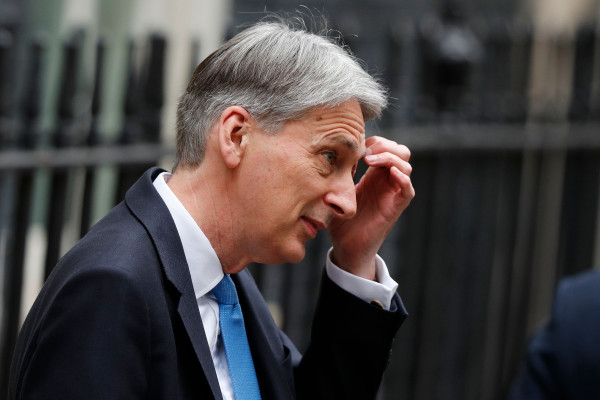

For a while, it was not certain who would deliver it, with rumours of a Conservative party leadership contest, and the slight but growing possibility of an imminent general election.
But Chancellor Philip Hammond announced this week it will take place on Monday 29 October.
Then there's the current fiscal and policy environment. Tax revenues are riding high and there is talk of an end to the age of austerity.
However, Brexit-related fiscal uncertainty gives the Chancellor very little wriggle-room.
While the government may be set against tax increases, the fact remains that new money will have to be found to fund the NHS and to provide a fiscal buffer against Brexit transition shocks.
The Chancellor must also meet the Conservative party manifesto commitment to eliminate the deficit by the mid-2020s.
Some of the Chancellor's challenges are not so unusual.
Tax giveaways?
The Budget should enhance the electoral standing of the government without the cost of unaffordable tax giveaways. It must address social issues without imposing unpopular new taxes.
Tax increases must be carefully targeted but require little parliamentary time. Finally, the overall direction of travel of fiscal policy should be clear and broadly accepted.
The Chancellor's pressing need is to show how he will deliver the Prime Minister's commitment to £20bn of additional NHS funding.
Some of this will come out of the general pot of taxation, but the Chancellor might feel that he could tick off several items on the government's to-do list and earn electoral support by using tax hypothecation to provide urgently needed funding for social care for the elderly.
This could provide a crucial boost to NHS finances, reduce bed-blocking and shorten waiting lists by allowing all patients to have the treatment they require.
But where would the tax come from? The ‘Amazon tax’ perhaps?
The Chancellor has already floated the idea of an internet sales tax, sometimes called the Amazon tax.
This bid to level the playing field between traditional high-street retailers and the large internet platforms will require very careful implementation: clicks-and-mortar high street businesses which also trade via internet platforms could suffer a double whammy if they fall foul of the new Amazon tax without any relief from business rates.
If this new, self-contained and eminently measurable tax was hypothecated to fund social care for the elderly, the Chancellor might find his popularity rising.
Hypothecating an internet sales tax to fund part of the NHS emphasises how both society and businesses change. There is no shame in the tax system changing to adapt.
Fuel and inheritance tax reliefs
Another area to watch is fuel duty. Fuel duty has been frozen for eight years and the longer the freeze continues, the more difficult it is to impose inflation-related increases.
As Mr Hammond has already hinted, maintaining the freeze would cost £38bn over the next three years.
While politically explosive, fuel duty increases would go a long way to easing the Chancellor's fiscal pressures.
Other simple changes include the modification of two inheritance tax reliefs. Business property relief and agricultural property relief can each provide exemption from inheritance tax.
The Chancellor may heed calls to restrict the scope of business property relief to those more closely involved with the business and tighten the assets test in respect of agricultural property relief.
Turning to capital gains tax, entrepreneurs’ relief is forecast to cost the Exchequer £2.7bn in 2018. Described by the Resolution Foundation as "quite likely the worst tax relief in the UK", it is possible that the Chancellor will look at restricting it.
Using entrepreneurs' relief, a person who sells part or all of their business is entitled to a lifetime relief on qualifying gains of up to £10m. These gains are taxed at only 10 per cent.
In its current form, the relief was intended to encourage serial entrepreneurs to sell successful businesses they created and to start new businesses. While investment continues to be a priority, many are questioning whether the relief is too generous or whether tax reliefs should instead focus on investments at the beginning of a new business rather than when the business is sold.
Apart from sales qualifying for entrepreneurs’ relief, capital gains tax is paid at 28 per cent on gains from residential property and at 20 per cent on gains made from other chargeable assets.
Speculation is growing that both these rates might be increased.
Pensions and corporation tax
Scarcely a Budget goes by without changes to the pensions tax regime. With limits having been cut dramatically over the years, sentiment around the fact that high-earners seem to benefit most from the pensions tax reliefs is hardening.
It would not be surprising to see tax relief for pension contributions limited to the basic rate of income tax.
The Chancellor must also indicate the future direction for UK corporation tax rates. With these receipts now at record levels, there is an argument that the current low corporation tax rates are stimulating profitable businesses.
Equally, there is concern that these profits reflect low-value employment which may not be in the long-term interests of the UK.
Since his first Budget in March 2017, Mr Hammond has demonstrated a much steadier approach to tax than his predecessor, along with a recognition of how tax law actually works in practice.
We will be watching carefully to see how this approach translates into action in the Autumn 2018 Budget, undoubtedly the most important of Mr Hammond’s career.
George Bull is senior tax partner at RSM UK



